Ondřej Kobza
Faculty of Electrical Engineering, CTU in Prague
Alquist 5.0: Dialogue Trees Meet Generative Models. A Novel Approach for Enhancing SocialBot Conversations
Oct 24, 2023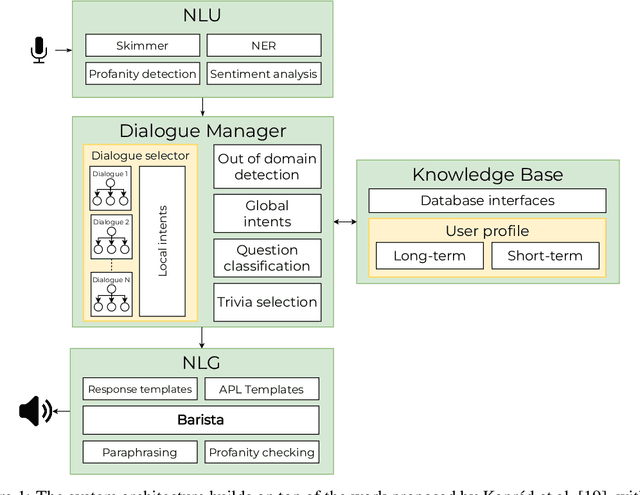

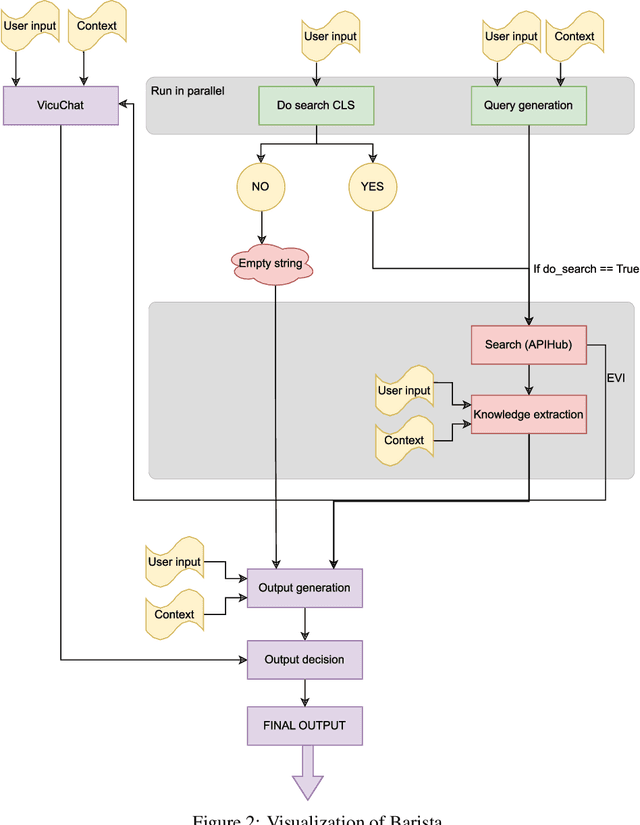

Abstract:We present our SocialBot -- Alquist~5.0 -- developed for the Alexa Prize SocialBot Grand Challenge~5. Building upon previous versions of our system, we introduce the NRG Barista and outline several innovative approaches for integrating Barista into our SocialBot, improving the overall conversational experience. Additionally, we extend our SocialBot to support multimodal devices. This paper offers insights into the development of Alquist~5.0, which meets evolving user expectations while maintaining empathetic and knowledgeable conversational abilities across diverse topics.
Flowstorm: Open-Source Platform with Hybrid Dialogue Architecture
Dec 19, 2022



Abstract:This paper presents a conversational AI platform called Flowstorm. Flowstorm is an open-source SaaS project suitable for creating, running, and analyzing conversational applications. Thanks to the fast and fully automated build process, the dialogues created within the platform can be executed in seconds. Furthermore, we propose a novel dialogue architecture that uses a combination of tree structures with generative models. The tree structures are also used for training NLU models suitable for specific dialogue scenarios. However, the generative models are globally used across applications and extend the functionality of the dialogue trees. Moreover, the platform functionality benefits from out-of-the-box components, such as the one responsible for extracting data from utterances or working with crawled data. Additionally, it can be extended using a custom code directly in the platform. One of the essential features of the platform is the possibility to reuse the created assets across applications. There is a library of prepared assets where each developer can contribute. All of the features are available through a user-friendly visual editor.
Metric Learning and Adaptive Boundary for Out-of-Domain Detection
Apr 22, 2022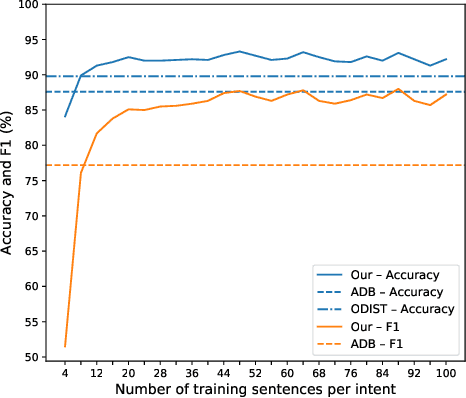



Abstract:Conversational agents are usually designed for closed-world environments. Unfortunately, users can behave unexpectedly. Based on the open-world environment, we often encounter the situation that the training and test data are sampled from different distributions. Then, data from different distributions are called out-of-domain (OOD). A robust conversational agent needs to react to these OOD utterances adequately. Thus, the importance of robust OOD detection is emphasized. Unfortunately, collecting OOD data is a challenging task. We have designed an OOD detection algorithm independent of OOD data that outperforms a wide range of current state-of-the-art algorithms on publicly available datasets. Our algorithm is based on a simple but efficient approach of combining metric learning with adaptive decision boundary. Furthermore, compared to other algorithms, we have found that our proposed algorithm has significantly improved OOD performance in a scenario with a lower number of classes while preserving the accuracy for in-domain (IND) classes.
Alquist 4.0: Towards Social Intelligence Using Generative Models and Dialogue Personalization
Sep 16, 2021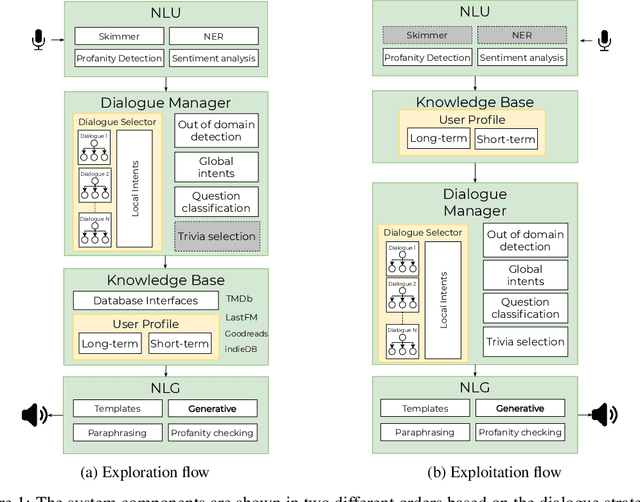
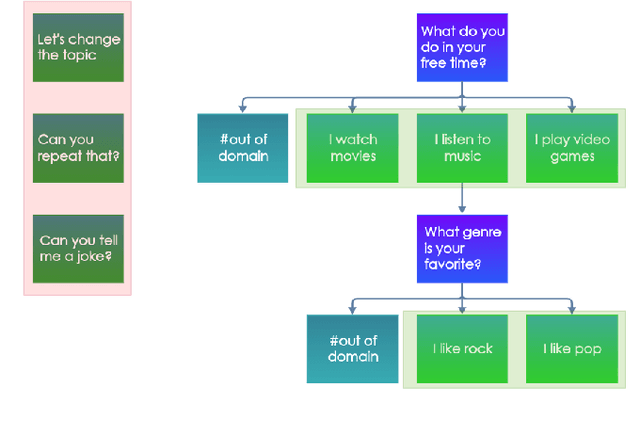

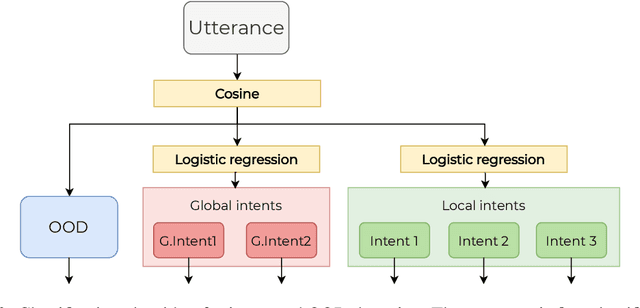
Abstract:The open domain-dialogue system Alquist has a goal to conduct a coherent and engaging conversation that can be considered as one of the benchmarks of social intelligence. The fourth version of the system, developed within the Alexa Prize Socialbot Grand Challenge 4, brings two main innovations. The first addresses coherence, and the second addresses the engagingness of the conversation. For innovations regarding coherence, we propose a novel hybrid approach combining hand-designed responses and a generative model. The proposed approach utilizes hand-designed dialogues, out-of-domain detection, and a neural response generator. Hand-designed dialogues walk the user through high-quality conversational flows. The out-of-domain detection recognizes that the user diverges from the predefined flow and prevents the system from producing a scripted response that might not make sense for unexpected user input. Finally, the neural response generator generates a response based on the context of the dialogue that correctly reacts to the unexpected user input and returns the dialogue to the boundaries of hand-designed dialogues. The innovations for engagement that we propose are mostly inspired by the famous exploration-exploitation dilemma. To conduct an engaging conversation with the dialogue partners, one has to learn their preferences and interests -- exploration. Moreover, to engage the partner, we have to utilize the knowledge we have already learned -- exploitation. In this work, we present the principles and inner workings of individual components of the open-domain dialogue system Alquist developed within the Alexa Prize Socialbot Grand Challenge 4 and the experiments we have conducted to evaluate them.
 Add to Chrome
Add to Chrome Add to Firefox
Add to Firefox Add to Edge
Add to Edge